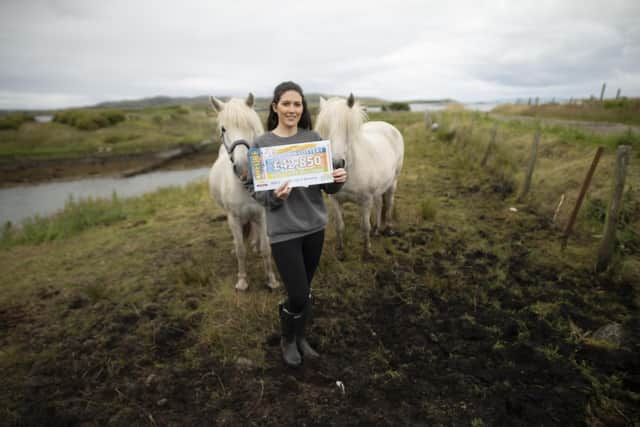Hills, glens, wildlife and real people: Why Scotland is the top location for escapist TV shows
The country has featured in more programme titles on the five main channels – a total of 14 – than any other place name over the same period.
Scotland pipped Yorkshire, in second place, and Cornwall, which completed the top three.
Advertisement
Hide AdAdvertisement
Hide AdMost of the shows have focused on stunning scenery, outdoor pursuits like fishing and life in remote areas such as the Scottish islands.


It’s thought Covid-19 travel limitations and restrictions on socialising have sparked an increased interest in the countryside, authentic personalities and traditional ways of life.
Scotland has been experiencing “a real boom” in production over the past few years, with popular shows such as Outlander, the Harry Potter movies and the James Bond film Skyfall being set here.
As travel restrictions have eased, international film-makers have been starting to return to Scotland.
Disney is due to begin filming for its new series Wedding Season around Glasgow, while scenes for Batman movie The Flash were shot in the city earlier this year.
Meanwhile, the Scottish producer of hit comedy The Inbetweeners has revealed plans to make a major new “adolescent” feature film in the Outer Hebrides, with dramatic landscapes on the Isle of Lewis providing the backdrop for a modern-day “tale of surfing, sex and hellfire”.
Tourism bosses believe it’s the same unique features of Scotland that are alluring for both visitors and film crews.
Jenni Steele, film and creative industries manager for tourism body VisitScotland, told BBC News: “The top things that attract visitors to Scotland are the landscapes, the scenery and the heritage.
Advertisement
Hide AdAdvertisement
Hide Ad“And you can see how that then translates quite easily over to production and crews."
During the pandemic, UK-based production teams were unable to travel abroad to shoot and so looked closer to home for inspiration.
“They were looking for something a little bit different, maybe a little bit less seen in the UK, and places like the Hebrides provided a really different type of landscape and opportunity,” Ms Steele said.
Programmes aired on BBC1, BBC2, ITV, Channel 4 and C5 over the past year included Fishing Scotland’s Lochs & Rivers; Scotland: A Year in the Wild; Scotland: My Life in the Wild; Inside the Balmoral: Scotland’s Finest Hotel; Darcey Bussell’s Wild Coasts of Scotland; and The Scottish Island that Won the Lottery.
Andrew Sheldon, who made Darcey Bussell’s Wild Coasts of Scotland, says the UK television industry has helped people get through the difficulties of lockdown by letting them see different places without leaving their own homes.
Mr Sheldon, creative director of production company True North, said: “There was a practical level during the first lockdown – ‘if I can’t visit those places, I’d like to look at them.
“But underneath that, there is an undercurrent of, we live in quite dark, very complex times and people yearn for more straightforward existence.
“People connect to the idea that there is a life out there that is simple, that is straightforward, and has clarity to it, where you can see the start and the end and it’s not some dystopian nightmare.”
A message from the Editor:
Thank you for reading this article. We’re more reliant on your support than ever as the shift in consumer habits brought about by coronavirus impacts our advertisers.
If you haven’t already, please consider supporting our trusted, fact-checked journalism by taking out a digital subscription.
Comments
Want to join the conversation? Please or to comment on this article.
